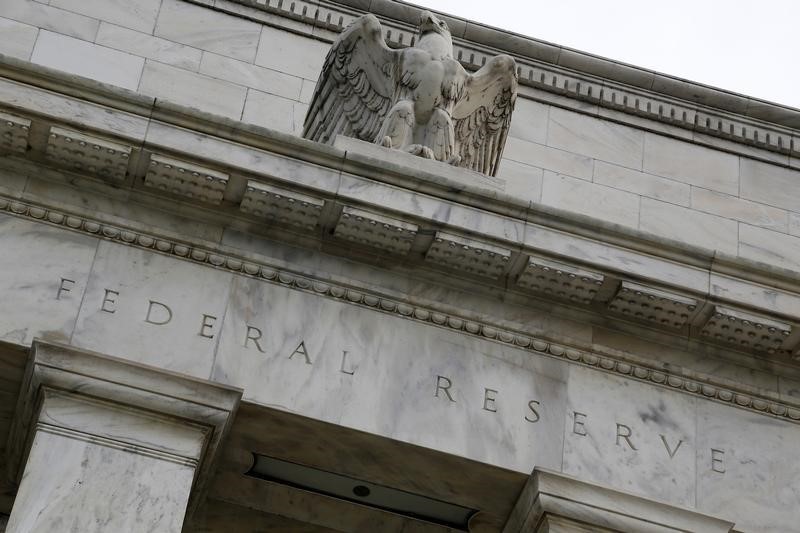(Bloomberg Opinion) -- What now? Continued Federal Reserve interest-rate increases for as far as the eye can see? Those are the primary questions with the last inflation target standing essentially hitting the central bank’s 2 percent bullseye.
The core personal-consumption-expenditures price index (PCE), a broad measure of inflation that excludes food and energy, rose 1.98 percent in July from a year earlier. The core PCE has long been the gentlest measure of inflation, so for many economists the evidence that it’s catching up to every other similar metric, such as the widely recognized consumer price index, that have long since pierced 2 percent is akin to the end of a vigil. (The government is expected to say Thursday that the consumer price index rose 2.4 percent in August from a year earlier when excluding food and energy.)
So, let’s get on with more rate hikes already — right? Perhaps, but such rigidity in the approach to monetary policy is a vestige of the past. Federal Reserve Bank of St. Louis President James Bullard has risen to the forefront of questioning the sanctity of relying solely on inflation in guiding policy. But it’s not because he feels inflation is too hot or too cold, but rather it is inappropriate. Bullard can always be relied upon to strike a dovish tone — so much so that many consider him dovish for the sake of being dovish. He warned in a speech last week that Fed policy was already “neutral or somewhat restrictive” as reflected in a very flat yield curve, which is one of Wall Street’s most reliable indicators for forecasting recessions. He downplays inflation as a reliable metric given how the economy has evolved, with financial assets becoming a bigger part of the economy. “Neither low unemployment nor faster real GDP growth gives a reliable signal of inflationary pressure because those empirical relationships have broken down,” Bullard said.
There’s some irony in markets branding Bullard as the most dovish member of the Federal Open Market Committee while placing Chairman Jerome Powell at the opposite end of the spectrum in the hawkish camp. The two are literally echoing one another’s views. Consider this from Powell’s Jackson Hole speech last month:
“Inflation may no longer be the first or best indicator of a tight labor market and rising pressures on resource utilization. Part of the reason inflation sends a weaker signal is undoubtedly the achievement of anchored inflation expectations and the related flattening of the Phillips curve. Whatever the cause, in the run-up to the past two recessions, destabilizing excesses appeared mainly in financial markets rather than in inflation. Thus, risk management suggests looking beyond inflation for signs of excesses.”
In an Aug. 15th interview with Central Banking, Bullard also said financial excesses should be monitored closely given the growth of the shadow banking system since the crisis a decade ago. Here, the Fed has always been handcuffed, limited to regulating bank holding companies and financial institutions with a bank charter. It has no jurisdiction over private equity or technology firms that have crept into the world of finance, entities Bullard said are in the business of avoiding regulatory overview:
“The whole game in Silicon Valley is to do regulatory arbitrage: ‘Let’s provide financial services in ways that are not covered by ordinary laws, and let’s build up a business, like Uber. Let’s build up a business and a constituency for that business outside of the normal legal framework, and then we will wait for the legal system to catch up, and then we’ll litigate at that point.’”
The geographic parallels with pre-2008 are striking. As the subprime mortgage lending apparatus was being built out in the housing boom years, then Fed Chairman Greenspan was repeatedly warned that the central bank would have to catch the falling knife when housing turned. To this, Greenspan’s stock reply was that the Fed only regulated a quarter of mortgage lending and therefore was not exposed to the mania building in Janet Yellen’s San Francisco Fed District, with Countrywide Financial at its epicenter. “It’s that shadow world where the next crisis will be brewing,” Bullard said, “and how is the regulatory apparatus going to handle that going forward?”
Bullard and Powell are both clearly looking back to the Fed’s past errors in judgment and questioning the efficacy of core PCE dictating monetary policy. They know that what started in the shadows of subprime lending ended with the fall of Lehman Brothers Holdings Inc. and the unleashing of systemic risk, the dangers of which were absent in a broken inflation metric. The question for the here and now is whether their shared perspective proves to be prescient, but at the same time, too late.
